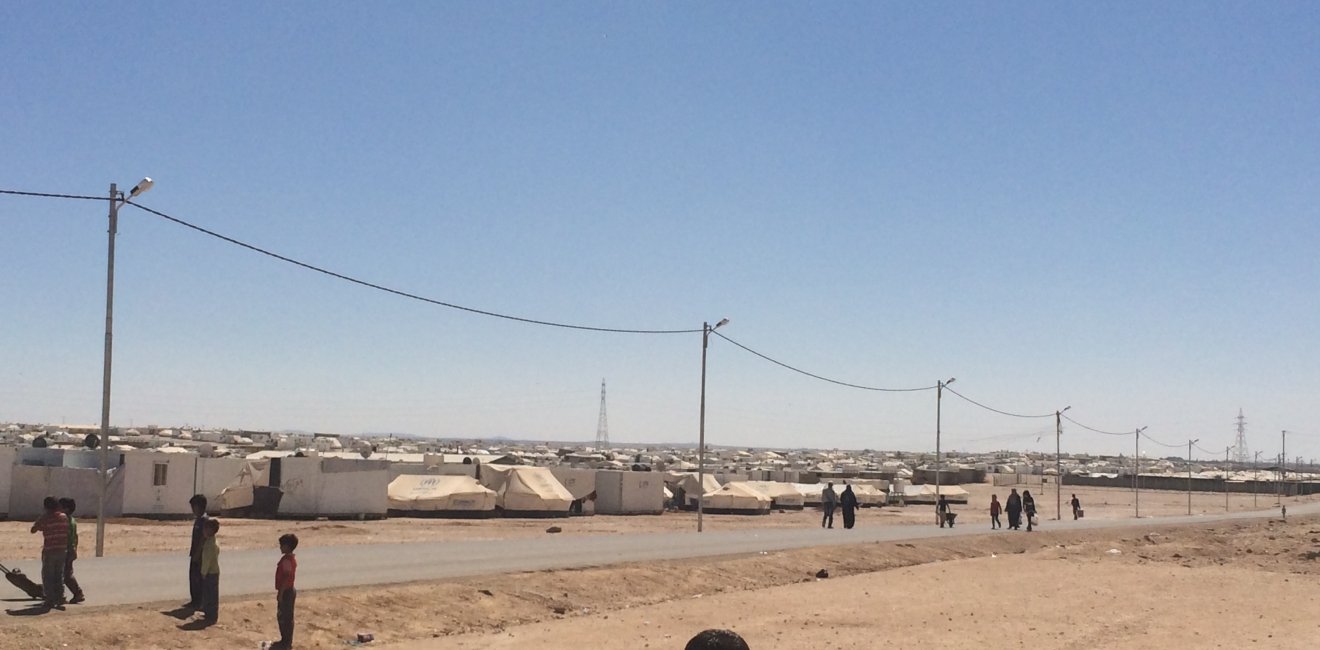
A blog of the Middle East Women's Initiative
UNHCR's new report published this week estimates that by the end of 2018, "almost 70.8 million individuals were forcibly displaced worldwide as a result of persecution, conflict, violence, or human rights violations.” This is another record high number and a stark reminder of the magnitude of the global refugee crisis.
The report also shows that 67% of the displaced come from five countries; Syria, Afghanistan, South Sudan, Myanmar, and Somalia with Syria topping the list at 6.7 million refugees. Today, eight years into the conflict, the Syrian refugee crisis remains to be both an immediate and long term challenge for the region; adding economic and political pressures, especially in the neighboring host countries of Lebanon, Jordan and Turkey. These countries are shouldering the lion share of this global responsibility.
What is most alarming, beyond the numbers, is the protracted nature of the global refugee crisis, particularly in the Middle East. UNHCR defines a protracted refugee population as one where “25,000 or more refugees from the same nationality have been in exile for five consecutive years or more in a given host country.” This definition certainly applies to the Syrian refugees across the region and highlights the need to invest in long term and durable solutions.
It is important to consider three key points when thinking of these long-term solutions. First, any durable solutions should include host communities impacted by the crisis, particularly where resources are scarce and governance is weak. Second, Long term solutions require close coordination amongst all relevant and key actors in the international community as well as host governments. Third, and mostly importantly, these solutions must include local leaders in the private, social and educational sectors, who are working at the grassroots level to address the situation, with the refugees’ dignity at the heart of their work.
In this special issue of Enheduanna, published today on World Refugee Day, we feature contributions from five women leaders from the region as well as from the Middle East diaspora here in America who are committed to empowering refugees with the necessary tools to rebuild, to be economically independent, and to live with hope for a better future.
A member of the Middle East diaspora in the United States and a leading academic from Rutgers University, Sahar Aziz presents key policy recommendations to decision makers and legislatures regarding how best to reform America’s refugee policy. Lara Shahin, a Syrian refugee herself living in Amman, makes the case for why economically empowering Syrian women in Jordan is “essential for preserving the dignity of present and future generations.” Noha Sabiee from Egypt advocates for supporting UNHCR and other international organizations that are supporting refugee populations. Warda Al Sayed from Yemen, calls on the international community and particularly the United States to support her organization’s work in protecting and empowering the internally displaced in Yemen. And Sonay Kanber from Turkey, showcases how with “increased skills and a change of mentality regarding production, (refugee) women become engines of their families’ adaptation, well-being and livelihood.”
It is these women’s stories, dedication and commitment to their work with refugees that speaks truth to power and gives a reason to hope in the midst of the grim reality of this global refugee crisis.
Author


Middle East Program
The Wilson Center’s Middle East Program serves as a crucial resource for the policymaking community and beyond, providing analyses and research that helps inform US foreign policymaking, stimulates public debate, and expands knowledge about issues in the wider Middle East and North Africa (MENA) region. Read more


Middle East Women's Initiative
The Middle East Women's Initiative (MEWI) promotes the empowerment of women in the region through an open and inclusive dialogue with women leaders from the Middle East and continuous research. Read more

Explore More in Enheduanna
Browse Enheduanna
Women are the Catalysts for Change in Lebanon

How Education Can Empower Young Women in MENA


